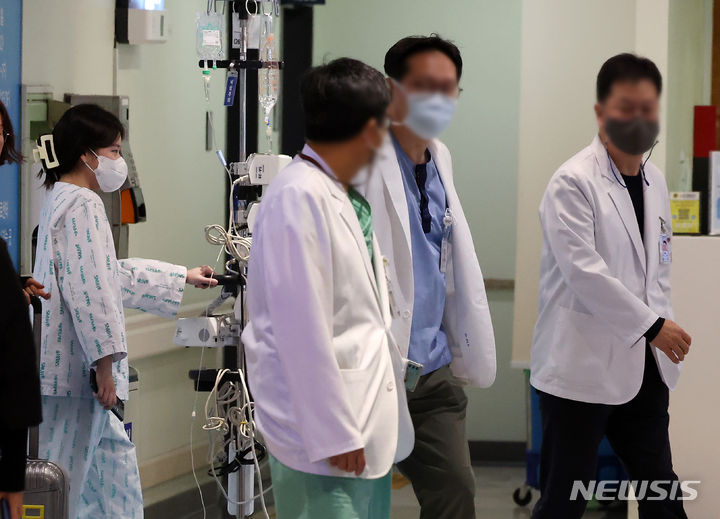Physical Address
304 North Cardinal St.
Dorchester Center, MA 02124
Physical Address
304 North Cardinal St.
Dorchester Center, MA 02124

A recent survey conducted among professors at Seoul National University’s College of Medicine and Hospital has revealed concerning findings regarding the impact of long working hours on their mental health and work-life balance. The survey results indicate that a significant number of professors are working more than 52 hours per week, and a high percentage of them are experiencing symptoms of depression.
The demanding nature of their work, coupled with the pressure to meet academic and research expectations, creates a stressful environment for professors. The survey highlights the detrimental effects of prolonged working hours on their mental well-being, leading to increased stress levels, fatigue, and a higher risk of mental health issues such as depression and anxiety.
Furthermore, the lack of sufficient rest time after working long hours exacerbates the situation. The majority of respondents reported a lack of guaranteed rest time, indicating a potential imbalance between work and personal life. This imbalance further contributes to the risk of mental health problems.
It is important to recognize that the impact of long working hours extends beyond individual well-being. The survey findings raise concerns about the quality of medical education and patient care provided by professors who are working excessive hours. Prolonged working hours can lead to fatigue and burnout, negatively affecting their ability to deliver high-quality lectures, mentor students, and provide effective clinical guidance.
Moreover, the survey reveals that a significant number of professors are suspecting symptoms of depression, which can impair cognitive function, decision-making abilities, and overall job performance. This raises concerns about their ability to provide optimal patient care, as a healthy mental state is crucial for healthcare professionals to deliver the best possible treatment.
The survey results emphasize the need for comprehensive measures to address the issue of long working hours among professors at Seoul National University’s College of Medicine and Hospital. Strict enforcement of labor regulations to ensure that professors’ working hours are within legal limits is necessary. Additionally, implementing support programs such as counseling services, mental health resources, and initiatives promoting work-life balance is crucial to prioritize the well-being of professors.
Creating a supportive and healthy work environment is essential not only for the overall well-being of professors but also for the quality of medical education and patient care. It is imperative for educational institutions and society as a whole to engage in broader discussions about the importance of work-life balance and the potential consequences of long working hours. Raising awareness and advocating for change can help foster a culture that prioritizes the well-being of medical professionals and promotes a balanced approach to work and personal life.
The impact of long working hours on professors at Seoul National University’s College of Medicine and Hospital goes beyond their mental health and work-life balance. The effect of these demanding work schedules can be observed in various aspects of their professional lives.
Working long hours can lead to fatigue and burnout, which can negatively affect professors’ teaching and mentoring abilities. Fatigue can impair their concentration, creativity, and overall effectiveness in delivering high-quality lectures and providing guidance to students. This can ultimately impact the quality of education received by future medical professionals.
Prolonged working hours can diminish professors’ efficiency and productivity. The excessive workload and lack of sufficient rest time can lead to decreased focus, motivation, and problem-solving abilities. As a result, tasks may take longer to complete, and the overall productivity of professors may suffer.
Research is a vital aspect of a professor’s role, and long working hours can have a detrimental effect on their research output. Fatigue and limited time for rest and rejuvenation can hinder creativity, innovation, and the ability to conduct thorough research. This can potentially impact the advancement of knowledge and scientific discoveries in the field of medicine.
The well-being and mental state of professors directly impact their ability to provide optimal patient care. Symptoms of depression and the associated cognitive impairments can affect decision-making abilities, attention to detail, and overall patient management. This can potentially compromise the quality of healthcare services provided by professors.
The demanding work schedules and long working hours can disrupt professors’ work-life balance. The lack of sufficient time for personal activities, leisure, and self-care can lead to increased stress, decreased satisfaction, and potential conflicts between work and personal life. This imbalance can have a long-term effect on their overall well-being and quality of life.
The negative effects of long working hours on professors’ well-being and job satisfaction can contribute to attrition within the profession. Professors experiencing high levels of stress, burnout, and mental health issues may choose to leave academia or seek alternative career paths. This can result in challenges in recruiting and retaining qualified and experienced professors.
Overall, the effect of long working hours on professors at Seoul National University’s College of Medicine and Hospital is far-reaching. It impacts their teaching and mentoring abilities, efficiency and productivity, research output, patient care, work-life balance, and the attrition and recruitment challenges within the profession. Recognizing and addressing these effects is crucial to ensure the well-being of professors and the quality of education and healthcare provided to students and patients.
If you’re wondering where the article came from!
#